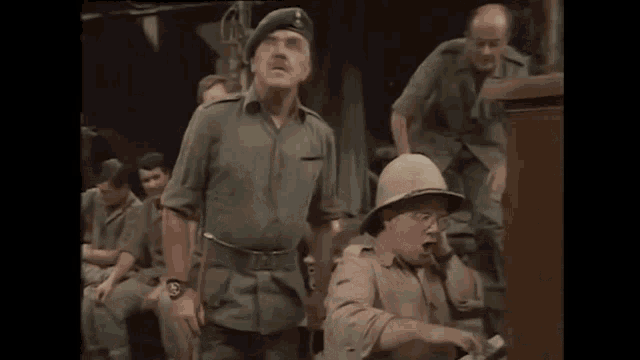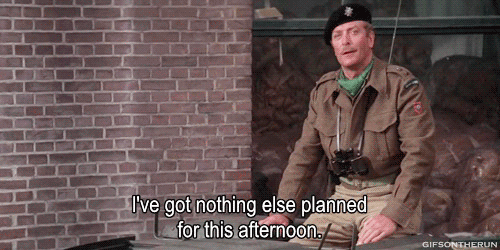Hauntology is a type of cultural archaeology these days, given that its moment has almost certainly passed. It’s perhaps unfairly characterised as the whining sound emitted by Gen-Xers as our brief moment of cultural hegemony (comic book movies/post-modernism) is squeezed between the more demographically generous buttocks of millennials and baby boomers.
But then we were always the forgotten generation. The latchkey, step-parented kids who watched too much TV, stayed up too late, ate too much junk food, and swallowed way too many drugs.
As much as Simon Reynolds might (reasonably) reject this as a “lazy” analysis in Ghosts of My Life, hauntology, at least in its Fisherian incarnation, does have something of the quality of an old man declaring war on the moon. If nothing else, the emergence of Grime and UK Drill rebutted Fisher’s notion that Jungle was the last revolutionary pop music pretty much at the very moment that he was asserting it.
But while the hauntological cultural moment may have passed, daily struggles with the consequences of Brexit seem to suggest that we are very much living at its political apex.
This is because if there was one cultural frame for the whole Brexit project, it was the one of a Britain isolated from a fascist Europe, fighting as the plucky underdog and winning the Second World War single-handedly.
Indeed (and as Rafael Behr has pointed out), to listen to Nigel Farage, Jacob Rees-Mogg, Paul Dacre, and Boris Johnson, one could be mistaken in thinking that it was they who stormed the beaches on D-Day, completed years of national service, or presided over the sunset of the Raj in India… except… they are, of course, too young to have done any of this.

In place of lived experiences of WWII, these ontological jokers draw on a national ur-myth whose foundational canon would have been served up regularly during their long summer respites from the Winchester College bullies: Dad’s Army, It Ain’t Half Hot Mum, and countless 1970s WWII action movies. (Although Farage has more in common with Basil Fawlty in “The Germans”).
All of these gesture towards a Britain that never existed. A cosy “cor-blimey guv” Albion of officers and men, where the little people knew their places. A Blighty standing toe-to-toe “alone” against Fascism which had yet to suffer post-war decline or post-imperial embarrassment. (Dog whistle alert: is it possible that part of this myth’s appeal is the sense that this Britain was so much whiter?)

There is something decidedly hauntological about all of this. The way in which a phantasmal and retrospective political and cultural movement has choked the life out of the pro-European futures articulated in the political and musical ground zero of post-punk (Empires and Dance, Europe After the Rain, Europa and the Pirate Twins); an insistence that the only way forward is a ghoulish simulacrum of Britain’s finest hour. It’s hard not to see echoes of Fisher’s assertion in Capitalist Realism that the only way forwards is backwards.
It is worth remembering perhaps, the Conservative Party’s original antipathy for the EU has its roots in a deep suspicion of the demands of the European Social Chapter and a fear that this was introducing “socialism through the back door”. (Reverse echoes of Truss’s paranoid anxieties of invisible supra-sovereign forces working to undermine a national government?)
Allying this dislike to the screen memory of a Greater Britain, spitfires over Dover, Rule Britannia, and the “good” empire, resulted in a toxically hallucinogenic brew that the Conservative Party was forced to ingest as some sort of ayahuascan post-imperial hangover cure.

Watch high priest Rees-Mogg’s eyes rotate behind his wire-rimmed spectacles like that snake from The Jungle Book. Witness lonely Gove’s cocaine jitterbug or Truss’s dead-eyed X-Files-lite rants about the deep state.
Retro’s opioid hit is, of course, that it gives the comfort of what we’ve known before, a Freudian return to the womb/nanny, along with a convenient yardstick that renders all other political practices inadequate by comparison.
It created a subjective/objective purity test where outspoken beliefs in Brexit dividends were more important than any rational concerns rooted in its evidential costs. A position which provided the pretext for Johnson to purge his party of anyone other than the faithful.
Like HAL9000 in Kubrick’s 2001, the delicious cognitive dissonance from this hauntological hit caused a psychic crisis which sent our ruling elite scurrying for higher and higher doses of post-truth (e.g. legislating to make Rwanda a safe country, an obsession with getting out from under “the yoke” of the European Court of Justice.) It’s monkey which they have, as yet, been unable to shake off.

The predictable paranoid comedown from all of this has meant the right have already started on the betrayal narratives: Brexit wasn’t done properly or has been sabotaged by fifth columnists/deep state forces. Ignoring, of course, that the Brexit that they espoused was a construct that would never have been achievable in any of the political contexts from which the UK was starting.
Is there any escape from this toxic nostalgia? Currently, it is hard not to agree with Fisher’s grim analysis that we are trapped within a mirrored box of our own making. As time passes and the veterans and survivors of World War II are gathered up, all we see are reflections of reflections.
To paraphrase Orwell’s O’Brien: “If you want a picture of the future, imagine Nigel Farage driving around in a jeep on the beaches of Normandy forever”. Perhaps, all we can do is hope that as the hauntological cultural moment has passed, then perhaps soon its political variant will do the same.